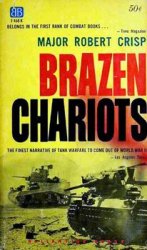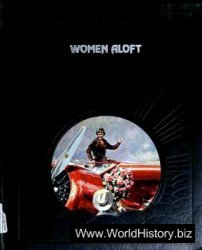In 1215, Innocent convened the Fourth Lateran Council, which Francis attended. Here he brushed shoulders with the princes of the church and made the acquaintance of Dominic de Guzman, the founder of another great thirteenth-century mendicant order, the Dominicans, the Order of Preachers. Before Dominic founded his own order, in 1216, he attempted to join the Franciscans, but because he did not forego a regular income, Francis would not admit him. Ultimately, Dominic did renounce worldly possessions on his own behalf and that of his order. Francis and Dominic remained friends until Dominic’s death in 1221. And the Dominicans would produce one of the great minds of the Middle Ages in Saint Thomas Aquinas.
Two items on Innocent’s agenda for the council affected the Franciscans in particular: the attempt to regularize the mendicant orders and to compel them to accept property in common, and the call for a fifth crusade. The former distressed the early Franciscans and especially Clare, because it burdened the women’s houses to a greater degree, but the latter appealed to Francis and would shape his future, while other reforms were more palatable from the outset—that the mendicant orders should contain more regularly trained priests, in particular. Innocent is said to have granted the privilege of poverty verbally to Claire when she appealed to him directly after the council, although officially it was not granted until just before her death. Innocent died not long after the Lateran Council and was succeeded by Cencio Savelli, who took the name Honorius III.
Another rising luminary whom Francis would have encountered at the council was Ugolino dei Conti di Segni, later (after Honorius’s death in 1227) Pope Gregory IX. Pope Honorius III appointed Ugolino plenipotentiary legate to Northern Italy in 1217; as such, he would exert much influence on the fledgling Order, in which he took an interest sometimes for the better, and sometimes not. In particular he kept his thumb on the Second Order, frequently compelling the women to adopt practices and policies that they did not desire; conversely, he was among Clare’s greatest admirers (in fact, all of the churchmen with whom Clare had dealings came to view her with extraordinary respect). Two of Francis’s practices worried Ugolino especially: his embrace of absolute poverty and his rejection of “book learning” and of the very books themselves. Not surprisingly, Ugolino was convinced that endowments and education would help the Order become more stable and influential.
Francis’s suspicion of education and prohibition of books might strike modern readers as uncharacteristically narrow-minded. Francis, on the other hand, might retort that Jesus Christ, his Lord and his paradigm, was a carpenter, not a theologian. Francis experienced theological truth through the most direct method possible: received sapientia, or wisdom, rather than through years of training in school acquiring mere scientia, or knowledge; he might be said to represent what Etienne Gilson called the Augustinian family of philosopher theologians, who believed that “all the rational truth about God that had been taught by the philosophers could be grasped at once, pure of all errors, and enriched with many a more than philosophical truth by the simple act of faith of the most illiterate among the faithful.”10 Francis’s narrow-mindedness might be said to lie more in not recognizing that this direct route was not available to all of his followers than in rejecting knowledge for its own sake. He believed, most fundamentally, that the quest for knowledge interfered with simplicity and humility, and that the friars would benefit more by spending time in prayer than in poring over books: “blessed Francis did not want his brothers to be desirous of learning and books, but wanted and preached to the brothers to be eager to have and imitate pure and holy simplicity, holy prayer, and Lady Poverty, on which the holy and first brothers had built” (Assisi Compilation 103). For Francis, brothers who forsook simplicity for education, who preached to impress others, had abandoned their vocation and would become puffed up in vanity and self-congratulation. But his position on education would ultimately fail, as more men entered the First Order: some of the finest and best-educated minds of the thirteenth and fourteenth centuries would be Franciscans, including Saint Bonaventure, Roger Bacon, William of Ockham, Ramon Llull (who was a tertiary), Saint Antony of Padua, John Duns Scotus, and a number of others less well known.
As the Order grew in its first decade of existence, then, and particularly between 1215 and 1220, Francis lost control over the process of recruitment. Newer recruits came in who had a desire for better accommodations and also for books and the opportunity for education. Their motives for joining the Order became less focused on Francis’s ideals—for some, entering upon a religious life was actually a road to better living, education, and advancement, and the Franciscan Order, which enjoyed the high favor of the church, might well advance their cause. And so, during this period and beyond, there was continual tension between those who wanted to follow Francis absolutely, renouncing everything, and those who favored a more liberal approach to the religious life (Ugolino tended to side with the latter). The former eventually split off into the suborder known as the Spiritual Franciscans, who endured persecutions of their own, as heretics, in the fourteenth century; some were burned at the stake. There was a sad and fundamental irony in this: that the more Francis-like Franciscans were the ones who became the heretics, in the end.
Increasing numbers also made it necessary to organize the Order into 12 provinces—8 in Italy and 4 beyond the Alps—under the supervision of Ministers elected by their subordinates; these provinces would meet at semiannual General Chapters at Porziuncula. The first General Chapter was held at Pentecost in May 1217; the second yearly conference would be held at Michaelmas. Among the things decided at the first General Chapter was that missionaries would be sent out on more ambitious journeys, across Europe and even to Outremer (the crusader states of the Middle East: the County of Edessa, the Principality of Antioch, the County of Tripoli, and the Kingdom of Jerusalem), to found missions and gain recruits. The notion of hierarchy, in which one man was master over others, did not please Francis, but he acknowledged that the weight of numbers made it necessary. New recruits insisted on regarding Francis as Minister General, although he never claimed the title for himself and wished to be considered instead one of the humblest of the brothers.
Francis was finally forced to accept that they all would need permanent accommodations, and so he began to permit houses and chapels to be built for them in lieu of caves and hermitages, and he reluctantly allowed the possession of a few service books in common—Franciscan service books are known for their small size, making them not only more portable but less costly and ostentatious. He also adopted the observance of the Divine Office to organize their days, which made them increasingly like other monastic foundations. Francis himself and his ideal of apostolic poverty had become remote to the majority of the friars.
As had been decided at the General Chapter, much of the work of the Order became focused on missions abroad, including Outremer, a mission to which Brother Elias was dispatched as leader immediately after the first chapter. Although Francis wished to focus on France for his own missionary work, he was dissuaded by Ugolino, who recognized his value at home. So Francis spent much of the year 1218 roaming Italy, arousing extraordinary enthusiasm among his listeners and inspiring a popular religious movement that was of great interest and utility to the church, because first and foremost, it emphasized obedience to church tenets, and it also discouraged lawsuits and complaints that might be levied against the hierarchy. Francis usually preached outdoors, in simple but enthusiastic and approachable language that the common people loved. His listeners sometimes snatched at his clothing, hoping to tear off a piece of it as a relic of the holy man: “So great was the faith of the men and women, so great their devotion toward the holy man of God, that he pronounced himself happy who could but touch his garment” (First Life 62).




 World History
World History









